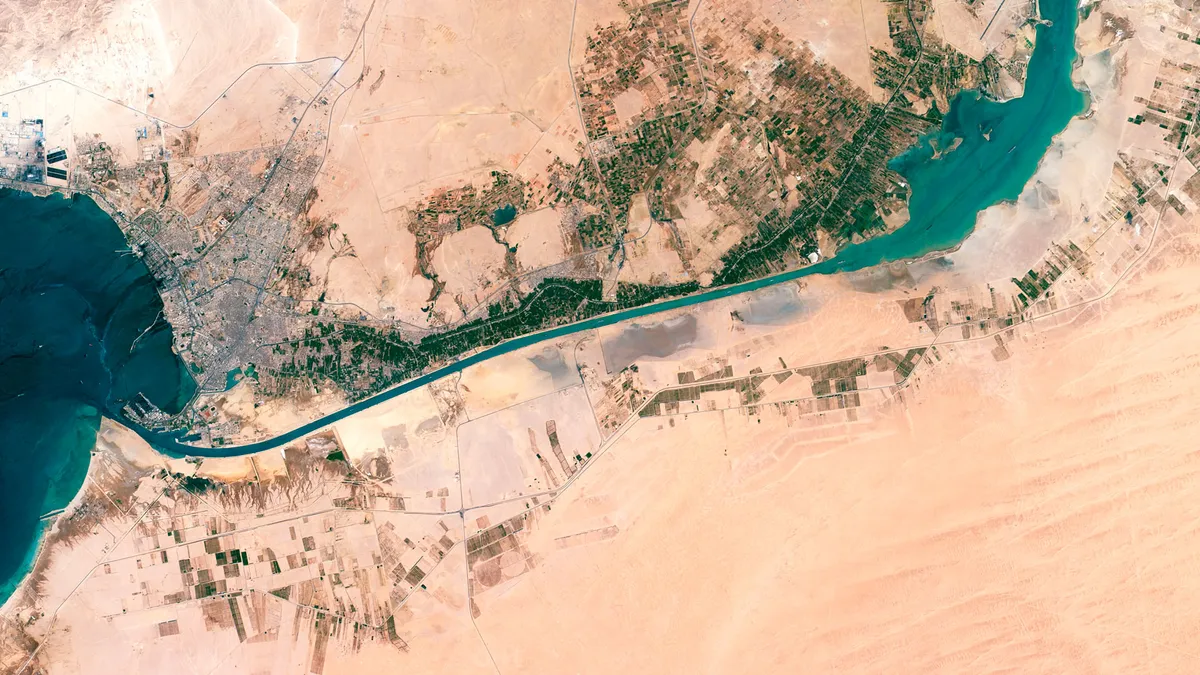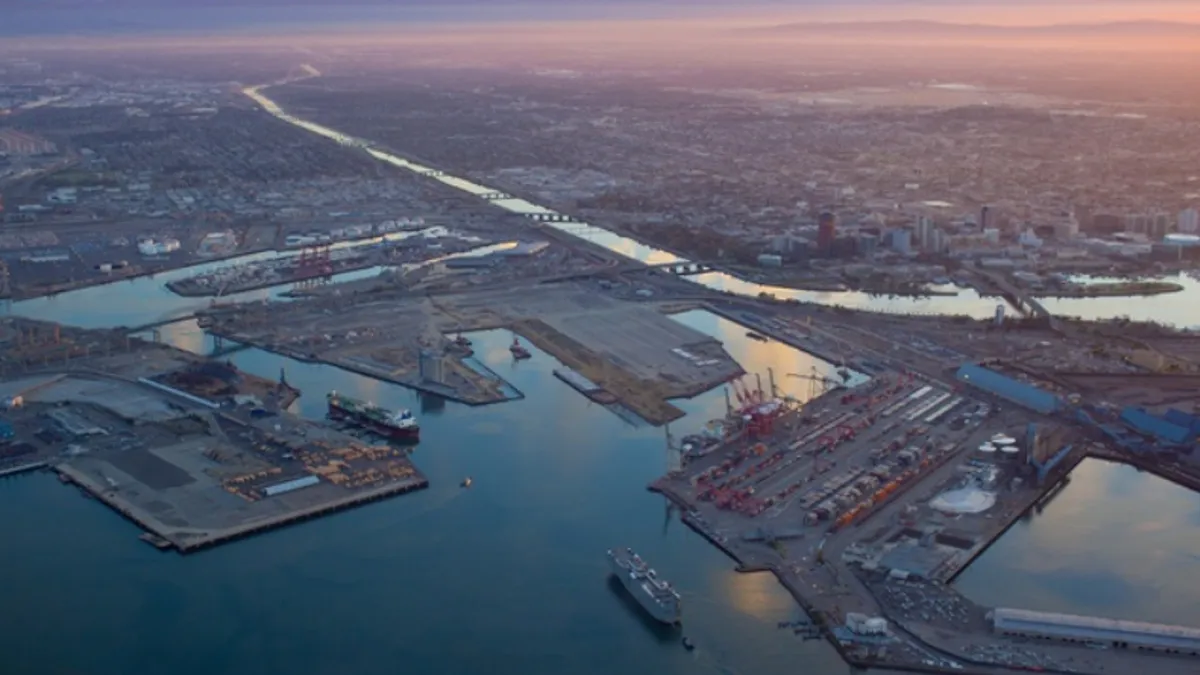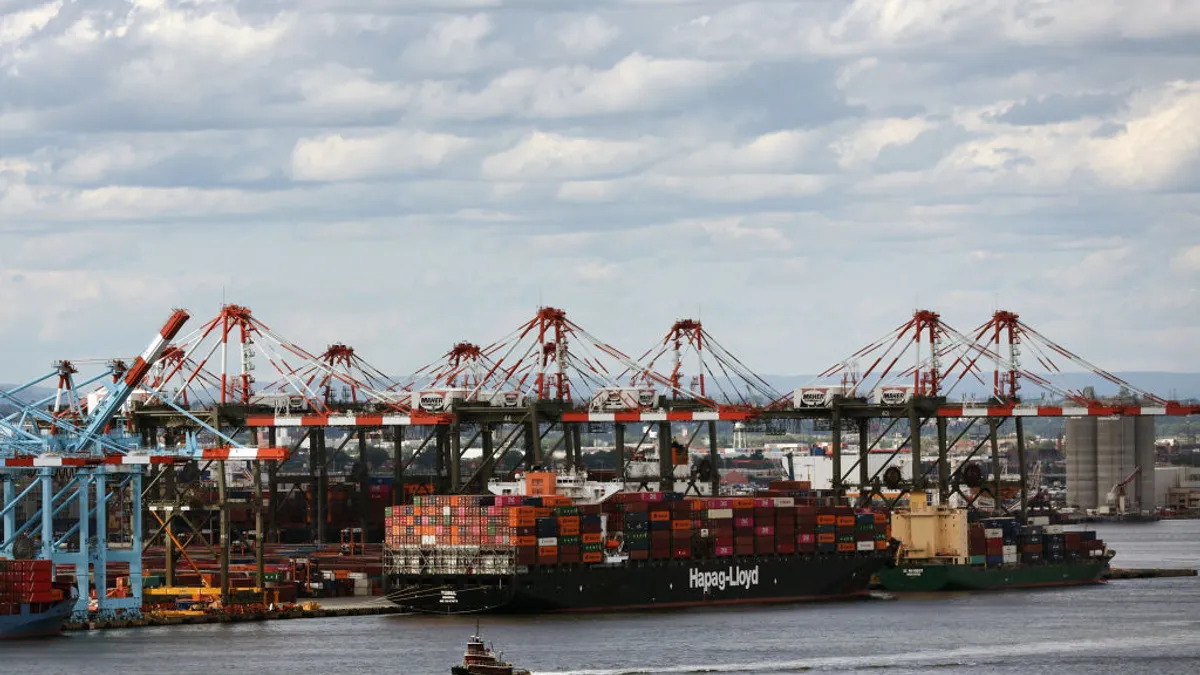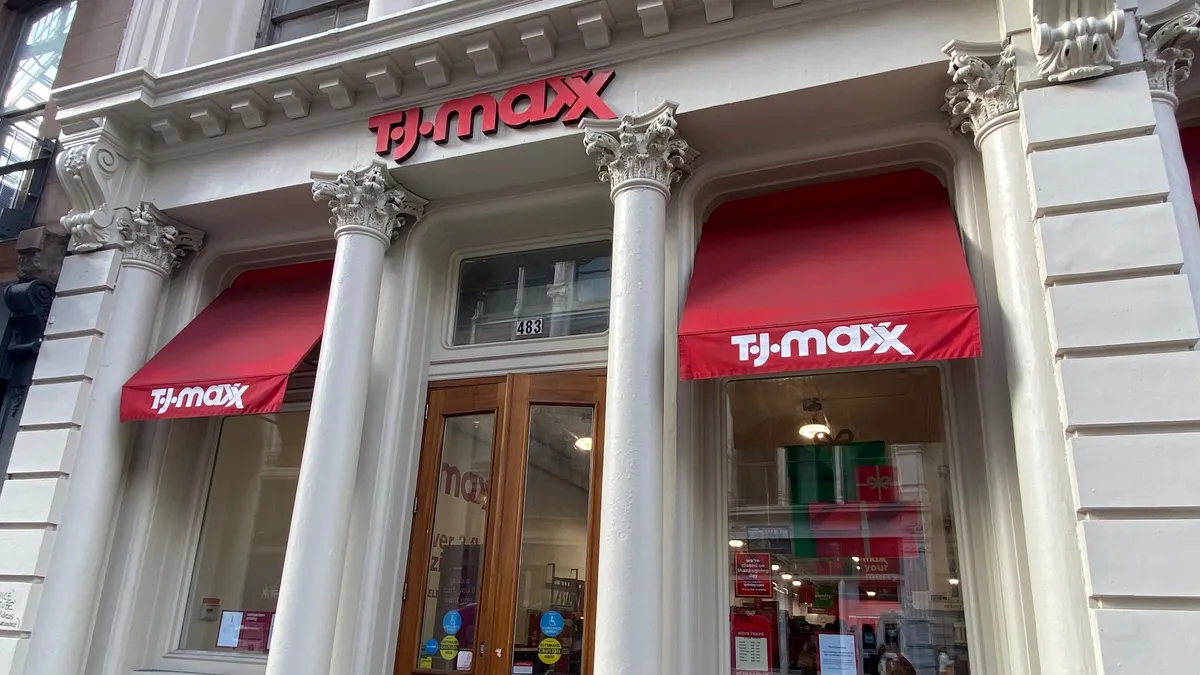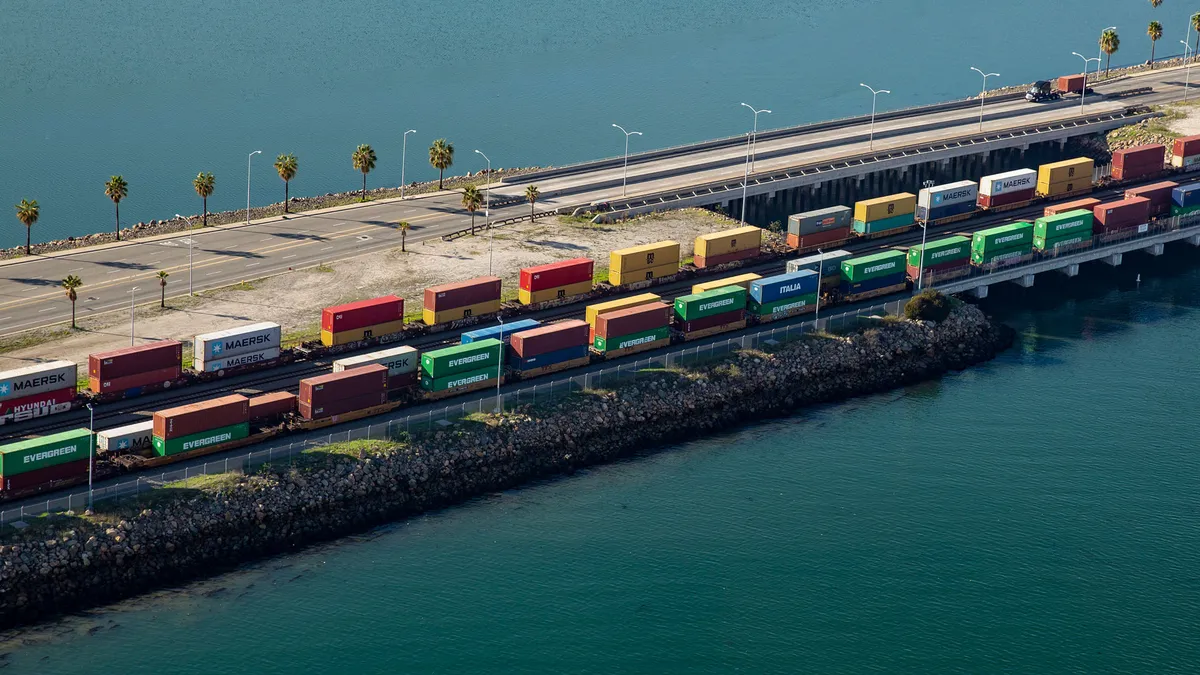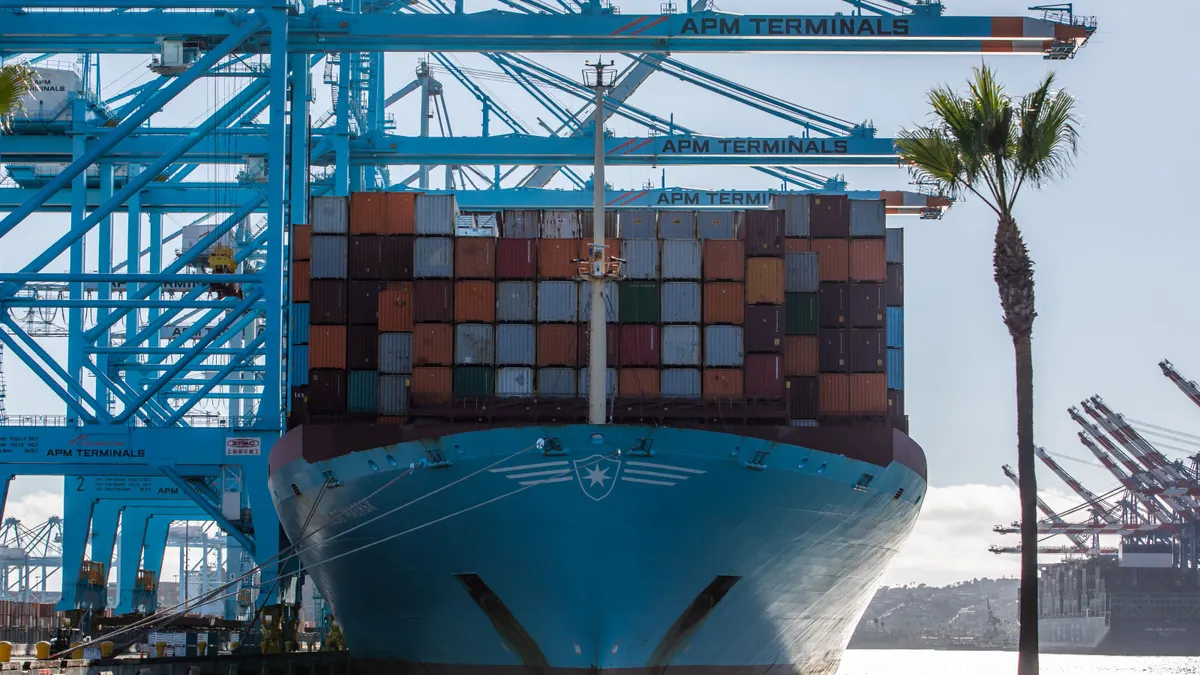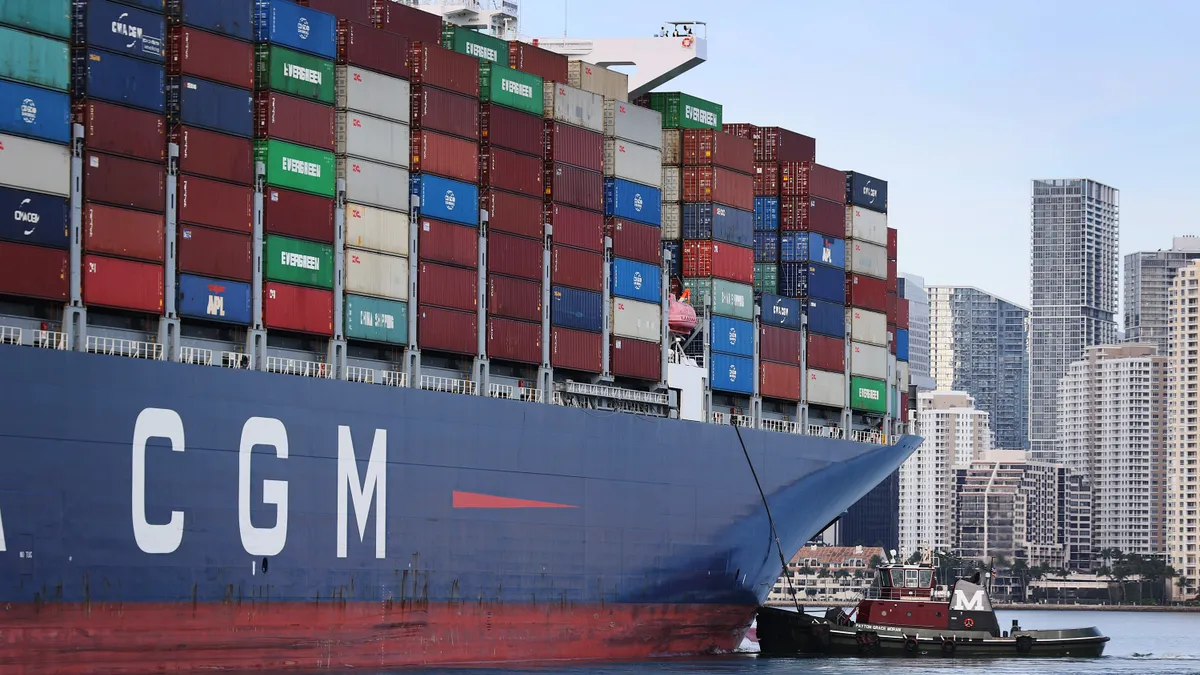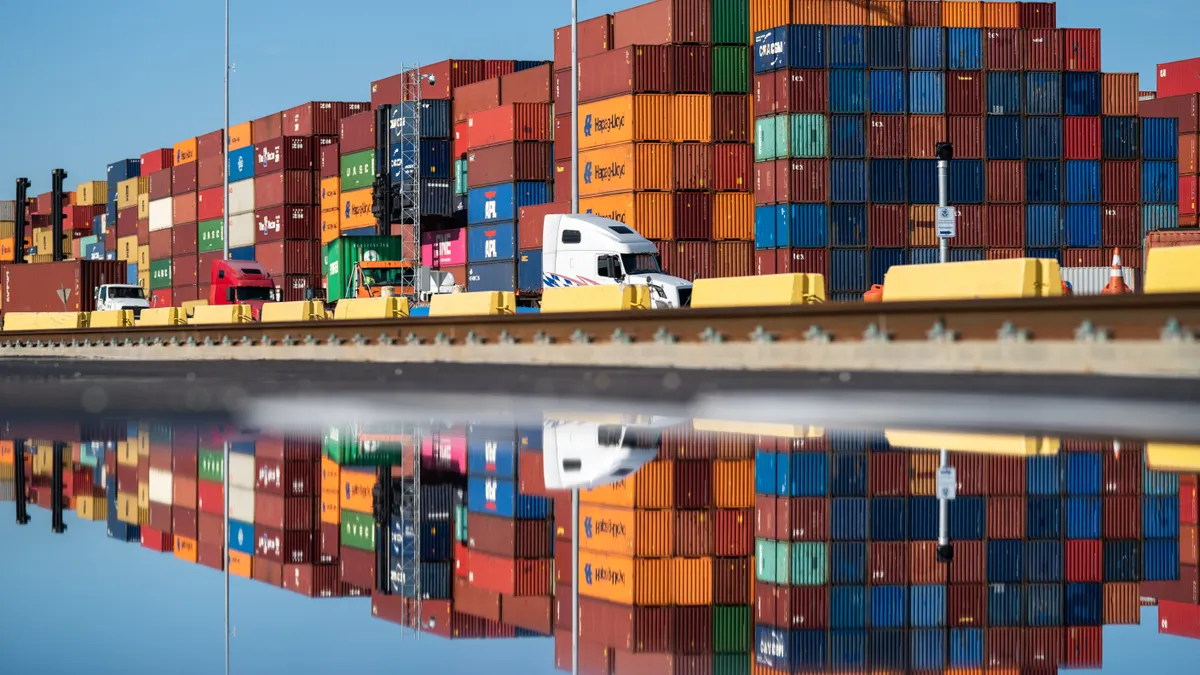Update: The Ever Given has been freed. Check out a timeline of how the events unfolded here.
Carriers and freight forwarders have been working to inform shippers affected by the blockage of the Suez Canal over the last two days. As the major trade artery remains jammed, cargo owners should expect delays and increased port congestion, especially in European gateways, experts told Supply Chain Dive.
Florian Braun, Flexport's head of ocean for Europe, the Middle East and Africa, said the forwarder had "quite a bit of cargo" on the Ever Given and other ships unable to pass through the canal. The impact for shippers will depend largely on efforts to refloat the ship, Braun said Thursday morning.
"If that doesn't work and they have to unload the cargo, we're talking about several weeks of delay for the specific shipments," he said.
The ship, Ever Given, remained lodged in the Suez Canal Thursday after running aground Tuesday as the result of strong winds, according to BSM, the technical manager for the ship.
Efforts to move the ship with barges alone failed, and dredgers began working to move sand and mud to free the vessel, BSM said in its most recent update.
"They are having two barges deployed at the moment around the ship," Chief Shipping Analyst at BIMCO Peter Sand said Wednesday, adding that it should be free in "a few days" and "hopefully not more than that, up to a week."
If refloating fails, a mobile crane will be needed, and the cargo will need to be unloaded, which would tack on several more days of delays, Braun said.
"That is going to have a big impact on the already stressed supply chain," he said. "So, this is why everyone's trying to refloat the vessel without unloading the cargo — that's the key point. There is no crane at the moment; you have to position one."
As of Friday morning on the U.S. East Coast, 62 container ships with a combined capacity of 727,764 TEUs were impacted by the blockage of the major trade artery, according to data from project44.
Maersk said it notified cargo owners if their cargo was impacted. A Hapag-Lloyd spokesperson said the carrier would notify affected customers Thursday. MSC pointed out that all major carriers are affected, and a spokesperson said that "customers with cargo due for transit the canal in the coming days should be prepared for potential schedule changes."
Many liners offer shippers the ability to see where their cargo is located, which is likely being used to assess how they've been impacted, Sand said. Evergreen, which operates Ever Given, said it is coordinating with the shipowner and Suez Canal Authority on the situation.
"Svitzer, our provider of towage and safety services, is taking part in the ongoing re-float operations as requested by the Suez Canal Authority (SCA)," Maersk said in a statement. "So far, seven of Maersk container vessels have been affected; four of them are stuck in the canal system while the rest are waiting to enter the passage."
Container ships impacted by Suez Canal blockage
The shipping artery plays an important role in connecting Asia to Europe and the Eastern U.S. In 2019, 18,800 vessels crossed through the Suez Canal, for an average of just under 52 ships per day, according to figures from the Suez Canal Authority. Container ships accounted for 5,321 of those voyages in 2019, the latest full year available from the Authority.
And the containerized industries that rely on the canal are extremely varied, including large retailers like Walmart, Ikea and Tesco; the automotive industry; and technology, Sand said.
"This affects everyone, basically," he said.

There is an alternative route: sailing around the southern tip of South Africa and the Cape of Good Hope. But this can take 19 additional days, depending on the size of the ship. Braun said. At this point, it would not make much sense for the carrier to opt for the alternative, Sand said.
"Patience, I guess, is the key word amongst most operators and owners in the area at the moment," Sand said, adding that if the blockage was going to last a week, the Cape of Good Hope could be a realistic alternative. "This is costly for everyone involved."
Cargo owners don't have a say in a carrier deciding to reroute. But shippers with goods that have not left port might have options. Braun said Flexport is looking at potentially using rail for shipping goods between China and Europe.
But with no good alternative water route, ships will continue to stack up on either side of the canal until the Ever Given is freed. Then, container lines will arrive around the same time at their next ports of call, creating congestion issues for European ports.
"Once this logjam clears out, we're going to have a huge backlog in some of the major European ports, so Rotterdam and Antwerp," Ocean Insights COO Josh Brazil said Wednesday.
Port delays were already expected to continue well into summer without the introduction of the Suez logjam. As of Wednesday, 49 ships were at anchor outside Rotterdam, Brazil said.
"That's going to cause more delays at the ports when these vessels call," said ManWo Ng, associate professor of maritime and supply chain management at Old Dominion University and the co-editor-in-chief of the peer-reviewed journal Maritime Transport Research. "That is not good news for shippers. In effect, there will be delays upon delays."
"Once this logjam clears out, we're going to have a huge backlog in some of the major European ports."

Josh Brazil
COO at Ocean Insights
In the short term, the Suez blockage could actually be a blessing in disguise for terminals, as ships stuck at the canal aren't showing up, giving them more time to process cargo that has already arrived, Sand said.
But the flow of cargo is not the only concern for supply chains. The equipment carrying the cargo is also in high demand. With the canal blocked it means that containers can't be returned for shippers to load their goods into, Braun said.
"We already have an equipment crisis, so this is going to accelerate the problem," he said.
Shippers could seek claims from Ever Given's liability insurer over losses stemming from late arrivals, sources told Reuters. Evergreen said in a statement that since the ship is chartered, the "responsibility for the expense incurred in the recovery operation; third party liability and the cost of repair (if any) is the owners."
Carriers will likely tell shippers and forwarders the situation falls under the force majeure clause in contracts if it's resolved in the next couple of days, Braun said.
"If that situation does not get resolved, and the cargo needs to be unloaded and the ship is damaged, then there's the potential that the carrier will call a general average," he said. "And that means that all the cargo owners have to contribute financially to resolving the issue."
This story was updated with new data from project44.



